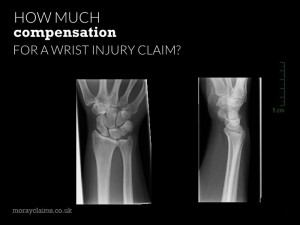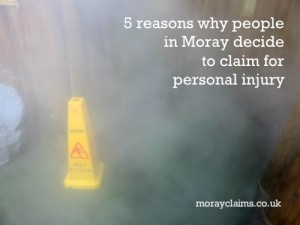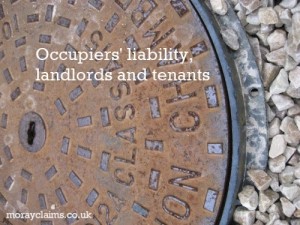Elgin’s Dr Gray’s Hospital takes its name from Alexander Gray. He was born in Elgin but died in India in 1807, having spent over 20 years working as a surgeon for the East India Company. He had amassed quite a fortune and he bequeathed the bulk of his estate to his native town. The sum of £20,000 (probably equivalent to more than £1 million today) was allocated “for the establishment of a hospital … for the sick and the poor”. Gray’s next of kin contested the will and it was not until 1814 that a court declared the money to be free for use to buy a plot of ground on the west side of the town. Building went ahead from the following year and the (then, 30-bed) hospital opened on 01 January 1819. 1814 was an important year for the future practice of medicine in Moray but it was also an important year in the wider medical world. 1814 was also a significant year in relation to the diagnosis and treatment of wrist injuries. In 1814, Abraham Colles (1773–1843), an Irish surgeon who Continue Reading
5 Reasons Why People In Moray Decide To Claim For Personal Injury
Our Personal Injury solicitors, Marie and Peter, have been handling claims on behalf of people in Moray for quite a few years now. Of the clients we have helped, probably none relished the prospect of making a compensation claim. Many had some sort of “objection” or problem in their minds, which they had to overcome before deciding to go ahead. The cynical “Compensation Culture” view is that it’s all about getting money. It has to be partly about money because that’s how the law of personal injury works but, in our experience, it’s not the whole story by any means. We’ve collected comments from injured people we have helped in Moray and this article sets out some of the most common motivating factors behind their claims. As you will see, some of the themes overlap a bit. Here are 5 reasons why people in Moray decide to claim for personal injury losses. You incur significant loss of earnings If you’ve been injured and have to take time off work in order to recover, you may not Continue Reading
Occupiers’ Liability, Landlords and Tenants
Occupiers' liability may apply where a defective drain cover causes an accident on premises In this post, we are looking at situations where you might have a claim for injury following an accident on premises owned or occupied by someone else. In Scotland, the Occupiers’ Liability (Scotland) Act 1960, requires occupiers of premises to take reasonable care for people who come onto their premises to see to it that they are not injured due to the state of the premises. While this is a statutory duty, because the obligation imposed is to take reasonable care, you still have to prove fault, as under the general law of negligence. Often this will mean it is necessary to gather evidence about how long the hazard in question had been in existence before the accident. The argument you have to counter is that, if the defect had not been there for very long before the accident, there was not sufficient time for the occupier to identify it and repair it before any accident happened and so Continue Reading
What is Moray Claims blog about?
Hello. My name is Peter Brash. What’s my line? I work in Elgin, Moray. That’s approximately half way between Aberdeen and Inverness in the beautiful North East of Scotland beside the shimmering Moray Firth. I’m head of the Personal Injury Department at Grigor & Young, Solicitors. Moray Claims is a trading name of Grigor & Young. We also have an office in Forres. Together with my solicitor colleague, Marie Morrison, we have over 40 years’ experience in dealing with personal injury claims for injured people in a wide range of circumstances. I am accredited by the Law Society of Scotland as a Specialist in Personal Injury Law. My colleague, Marie Morrison, and I are both members of the Association of Personal Injury Lawyers (APIL) and Accredited by APIL as Senior Litigators. The Elgin branch of Grigor & Young has corporate accreditation from APIL. So what is Moray Claims blog about? In posting to this blog, I’m airing informal opinions about legal matters – generally Continue Reading



